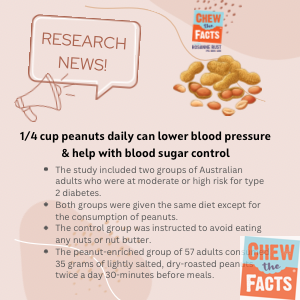Kidneys contaminated with hepatitis C can be properly transplanted into wholesome recipients — ScienceDaily
Kidneys from deceased donors with hepatitis C virus (HCV) infection can be securely transplanted into noninfected recipients when a program of immediate-acting antiviral therapies is initiated as early as two days after the transplant, in accordance to a review from Massachusetts Basic Hospital (MGH). In a multi-middle clinical trial noted in the Journal of the American Society of Nephrology, MGH scientists located that every of 30 kidney recipients were healed of HCV with no really serious facet consequences attributable to the antiviral remedy, and that almost all managed excellent allograft purpose at 6 months.
“We efficiently treated the hepatitis C virus in kidneys transplanted from HCV-favourable donors by working with the antiviral brokers glecaprevir and pibrentasvir as aspect of an 8-7 days class of day by day dosing,” states Meghan Sise, MD, investigator in the Division of Nephrology at MGH and co-very first author of the analyze. “These conclusions could have a solid concept to the lots of transplant facilities that are nevertheless wary about or resistant to employing kidneys from HCV-infected donors. We’ve shown that these so-termed donor positive to recipient negative transplants can be done safely and securely and proficiently by means of early antiviral intervention.”
Approximately 95,000 folks in the U.S. are presently waiting around for kidney transplant, most struggling progressive health deterioration. For some teams, like patients over 60, loss of life is a bigger certainty than a transplant. Supplied this sizeable community well being trouble, the U.S. Department of Well being and Human Providers established a objective of doubling the number of kidneys offered for transplantation by 2030 as section of the Advancing American Kidney Wellbeing Initiative. 1 promising pathway toward that target is reducing the discard of feasible human kidneys that now occurs, particularly from deceased persons with hepatitis C virus infection. The amount of those organs has soared about the earlier 5 years as a outcome of mounting deaths from the national opioid epidemic.
The MGH potential demo is the first multi-centre investigation to exhibit the feasibility of donor favourable to donor negative transplantation. Identified as MYTHIC (Multi-Center Review to Transplant Hepatitis-C Infected Kidneys), the analyze was conceived and carried out in collaboration with the Perelman School of Medicine at the University of Pennsylvania. Each individual of the trial’s 30 kidney recipients at seven U.S. transplant facilities was specified an 8-7 days study course of a coformulation of glecaprevir and pibrentasvir, strong antiviral brokers that goal two distinctive proteins in just the virus that are essential to its survival.
Although a single individual died of difficulties of sepsis deemed unrelated to demo participation, no significant facet consequences or liver disorder were noticed in any patient, and allograft operate at six months was great. “Quite a few of the people showed a tiny amount of virus in their blood suitable right after transplant, but that viral load grew to become undetectable or unquantifiable in all recipients of HCV-viremic kidneys by 4 weeks of procedure, ” notes Raymond Chung, MD, investigator in the Liver Middle and Gastrointestinal Division at MGH and co-senior writer of the examine.
The trial’s accomplishment extends to the progress by the research team of an proof-based medical protocol for transplanting hepatitis C-contaminated kidneys that could be used by transplant facilities everywhere. “We sought to swap the a lot of homegrown protocols dependent on different cure regimens with just one that is seem, uniform and reproducible,” explains Chung. “We believe that we have succeeded by generating a quite uncomplicated tactic that operates in individuals.”
Researchers are now hopeful that transplant facilities will consider observe of these encouraging benefits and the chance they find the money for to maximize obtain to significant high quality organs by patients in essential require of a kidney transplant. “By displaying that these techniques are effective,” states Sise, “we’re hoping that insurance organizations will also see the great profit of generating transplants with hepatitis-C contaminated kidneys uniformly protected and reimbursable. The top intention of every person ought to be to enhance the high-quality and quantity of lifetime for people waiting around for a kidney transplant.”
Sise is also a nephrologist and assistant professor of Medicine at Harvard Health care Faculty. Chung is director of Hepatology and the Liver Centre at MGH. The research team also involved MGH authors Winfred Williams, MD, Nahel Elias, MD, Jenna Gustafson, MS, and co-guide writer David Goldberg, MD and, from University of Pennsylvania, co-senior author Peter Reese, MD.
The examine was supported by the biopharmaceutical firm AbbVie.
Tale Source:
Resources provided by Massachusetts Basic Clinic. Take note: Material may possibly be edited for model and duration.





